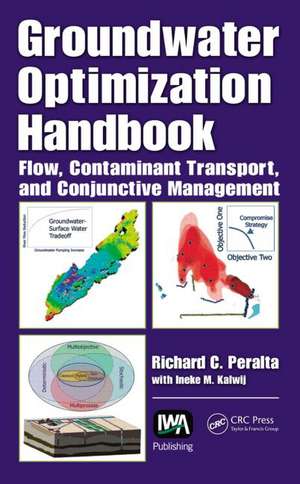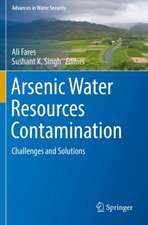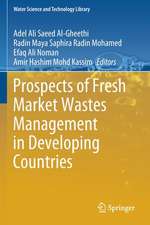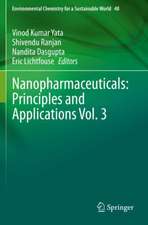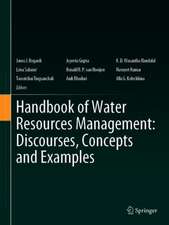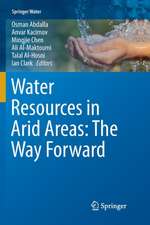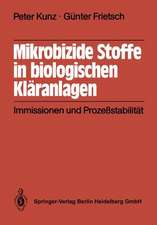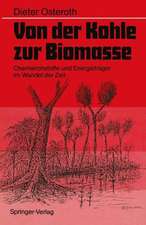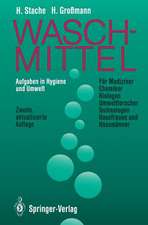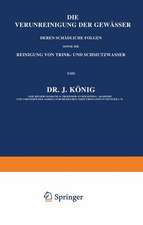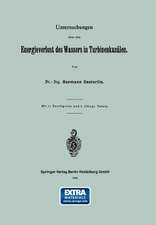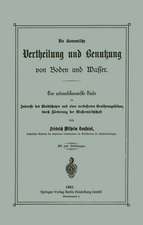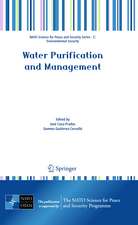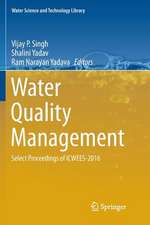Groundwater Optimization Handbook: Flow, Contaminant Transport, and Conjunctive Management
Autor Richard C. Peraltaen Limba Engleză Hardback – 26 apr 2012
Written for readers of varying familiarity with groundwater hydrology and mathematical optimization, the handbook approaches complex problems realistically. Its techniques have been applied in many legal settings, with produced strategies providing up to 57% improvement over those developed without S-O modeling. These techniques supply constructible designs, planning and management strategies, and metrics for performance-based contracts.
Learn how to:
- Recognize opportunities for applying S-O models
- Lead client, agency, and consultant personnel through the strategy design and adaptation process
- Formulate common situations as clear deterministic/stochastic and single/multiobjective mathematical optimization problems
- Distinguish between problem nonlinearities resulting from physical system characteristics versus management goals
- Create an S-O model appropriate for your specific needs or select an existing transferrable model
- Develop acceptable feasible solutions and compute optimal solutions
- Quantify tradeoffs between multiple objectives
- Evaluate and adapt a selected optimal strategy, or use it as a metric for comparison
Ancillary materials are available from the Downloads tab on the book page at www.crcpress.com.
Preț: 1133.08 lei
Preț vechi: 1381.80 lei
-18% Nou
Puncte Express: 1700
Preț estimativ în valută:
216.84€ • 224.01$ • 180.47£
216.84€ • 224.01$ • 180.47£
Carte tipărită la comandă
Livrare economică 25 martie-08 aprilie
Preluare comenzi: 021 569.72.76
Specificații
ISBN-13: 9781439838068
ISBN-10: 1439838062
Pagini: 532
Ilustrații: 202 b/w images, 16 color images, 70 tables and 200-250 equations
Dimensiuni: 156 x 234 x 33 mm
Greutate: 1.14 kg
Ediția:1
Editura: CRC Press
Colecția CRC Press
ISBN-10: 1439838062
Pagini: 532
Ilustrații: 202 b/w images, 16 color images, 70 tables and 200-250 equations
Dimensiuni: 156 x 234 x 33 mm
Greutate: 1.14 kg
Ediția:1
Editura: CRC Press
Colecția CRC Press
Public țintă
Hydrologists; hydrogeologists; irrigation, agronomic, conservation, environmental, and natural resources scientists; civil, agricultural, irrigation, environmental, geotechnical, and systems engineers; natural resources and environmental regulators and decision makers; and companies designing, building, or owning well systems for water supply, dewatering, drainage, environmental protection, and remediation.Cuprins
Introduction to S-O Concepts: Essence of Optimizing Groundwater Management. Introduction to Mathematical Optimization for Groundwater Strategy Design. Optimization Theory: Optimization Problem Types and Categories. Deterministic Optimization. Optimization with Uncertainty. Multiobjective Optimization Approaches. Exact and Approximation Simulator Theory: Embedded Numerical and Analytical Equations. Response Matrix Simulators. Approximation and Other Simulators. S-O Processes and Guidance: Formulating Optimization Problems and Selecting S-O Tools. Preparing Data Input and Implementing S-O Tool. Groundwater and Conjunctive Management S-O Application Guidance. Groundwater Contamination and Transport Management S-O Application Guidance. Applications: Hydraulic S-O Modeling Applications. Contaminant Transport S-O Modeling Applications. Closure. Glossary. Index.
Recenzii
"In my experience, most text books only cover the theory behind a topic and go into great detail on the research and derivation of various methodologies. However, practitioners in the field also need to know how the theoretical underpinnings of the science get applied in the real world. Few books actually accomplish this and thus are not really all that useful to those of us who "get our hands dirty". Dr. Peralta's book covers both aspects quite well. The theory behind various optimization techniques is presented along with how these theories and methods are used to solve real problems. The examples in the book are not just small synthetic problems that bear no resemblance to reality. They illustrate the solution to large-scale, real optimization"
—James Rumbaugh, Environmental Simulations, Inc., Reinholds, Pennsylvania, USA
"The book provides a good summary of the fundamental optimization techniques from the classical approaches to the current state-of-the-art methods, but provides excellent guidance on the appropriate application to ground water problems. The book illustrates most of the important concepts with simple theoretical examples and/of real-world applications of the techniques. The efficient application of these techniques requires experience and perhaps intuition, and Dr. Peralta has tried his best to convey some of the insights from his extensive portfolio of successful optimization projects to the reader. The strength of the book really lies beyond the early chapters covering the basics of optimization; it is in the discussion of these actual applications."
—David J. Becker, University of Nebraska at Omaha
—James Rumbaugh, Environmental Simulations, Inc., Reinholds, Pennsylvania, USA
"The book provides a good summary of the fundamental optimization techniques from the classical approaches to the current state-of-the-art methods, but provides excellent guidance on the appropriate application to ground water problems. The book illustrates most of the important concepts with simple theoretical examples and/of real-world applications of the techniques. The efficient application of these techniques requires experience and perhaps intuition, and Dr. Peralta has tried his best to convey some of the insights from his extensive portfolio of successful optimization projects to the reader. The strength of the book really lies beyond the early chapters covering the basics of optimization; it is in the discussion of these actual applications."
—David J. Becker, University of Nebraska at Omaha
Notă biografică
Richard Peralta, PhD, PE, has used S-O modeling to design strategies for more than 20 sites or real-world projects. As a Utah Cooperative Extension Service water quality coordinator, he optimized nonpoint and point source contamination management, and collaborated with state and federal agencies in technology transfer and public education. Through the University of Arkansas, and subsequently Utah State University, private work, and the U.S. Air Force Reserve, he worked in 25 U.S. states and in numerous countries. For the military, he participated in and led many environmental contamination remediation evaluation teams and helped provide optimal solutions that were successfully implemented in the field. After several years of advising on environmental matters in the Pentagon, Colonel Peralta retired from the U.S. Air Force Reserve as a chief bioenvironmental engineer. He is a professor in the Civil and Environmental Engineering Department at Utah State University, consults privately, and is the distributor of SOMOS software. For more information, see Dr. Peralta’s page at the College of Engineering at Utah State University.
Contributing author Ineke M. Kalwij, PhD, PEng, collaborates with Dr. Peralta, working on groundwater optimization software development and publications. She also provides consulting services to clients, primarily in the area of groundwater system management. For more information, see Kalwij Water Dynamics Inc.
Contributing author Ineke M. Kalwij, PhD, PEng, collaborates with Dr. Peralta, working on groundwater optimization software development and publications. She also provides consulting services to clients, primarily in the area of groundwater system management. For more information, see Kalwij Water Dynamics Inc.
Descriere
This how-to handbook thoroughly introduces you to groundwater systems analysis and simulation-optimization (S-O) approaches appropriate for most groundwater problems. It covers optimization terminology, principles, and techniques (deterministic, stochastic, multiobjective), and S-O algorithms used to successfully resolve real-world groundwater quantity and quality management problems, often at significantly reduced expense. Using numerous flowcharts and examples, the book offers guidance for formulating and solving optimization problems, creating or selecting appropriate S-O models, and adapting and implementing optimal strategies for managing flow, contamination, and conjunctive use. Such strategies (up to 57% better than strategies developed without S-O modeling) are implementable or provide comparative performance metrics.
